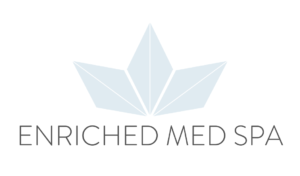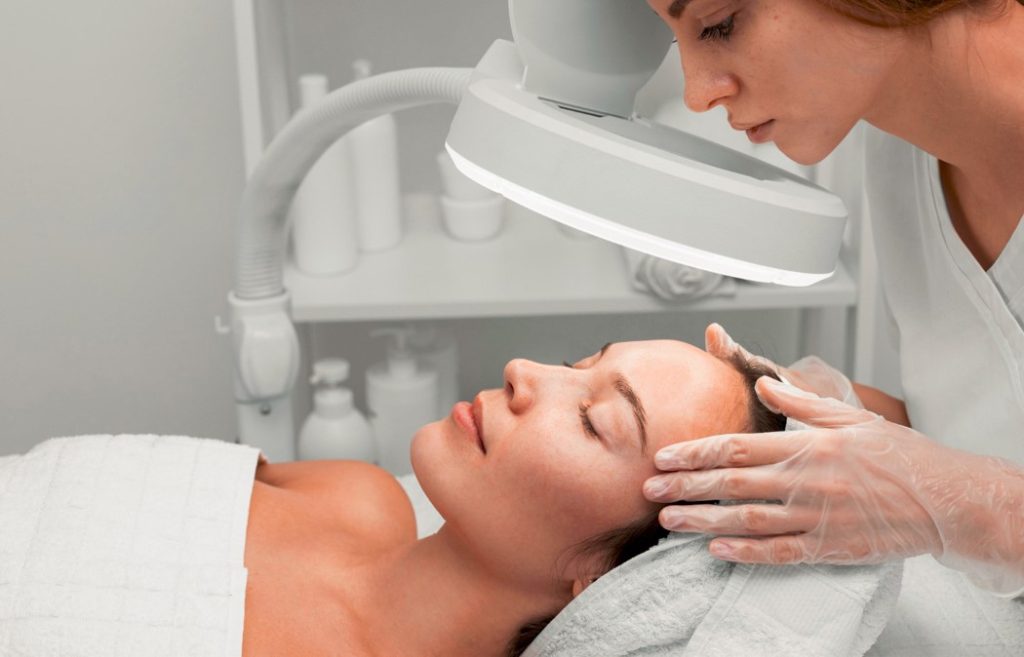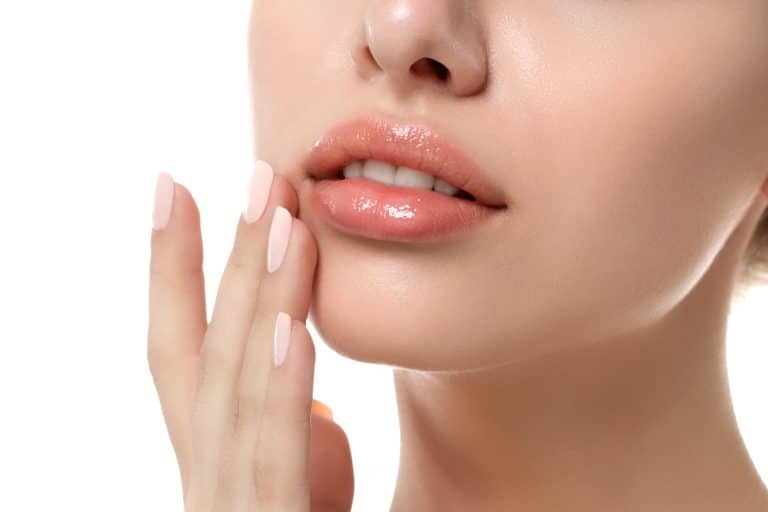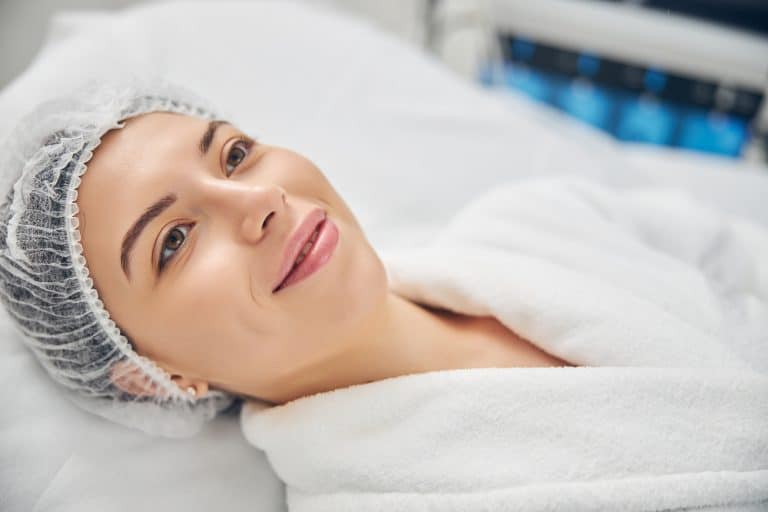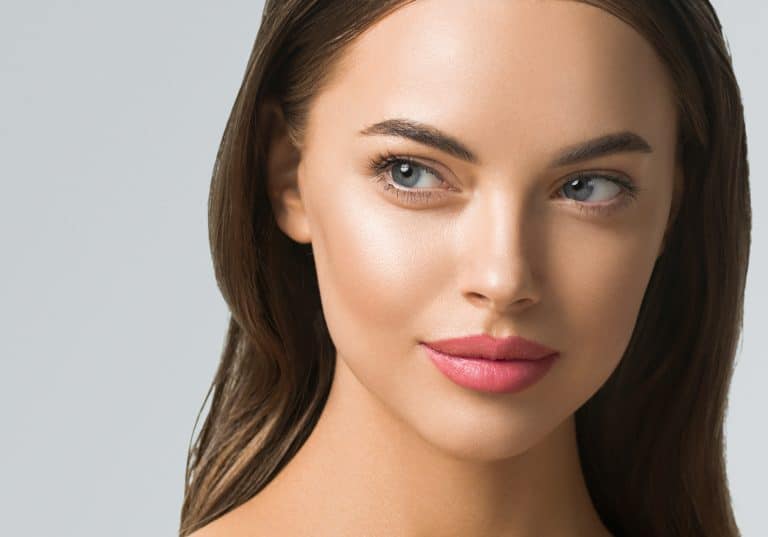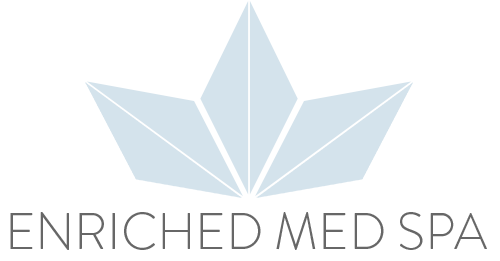Looking for ways to improve your skin? Whether you want to smooth out fine lines and wrinkles, even out skin tone, reduce scars, or prevent new acne, non-surgical treatments can help. In this article, we’ll discuss the most popular cosmetic skin treatments, how they work, and what results you can expect.
What Are Skin Treatments?
There are many skin problems, and numerous treatments are available. While some skin problems can be resolved with traditional skincare or home remedies, others require more sophisticated treatments like chemical peels, microdermabrasion, laser resurfacing, blue light therapy, and thermage.
Types Of Skin Treatments
- Blue Light Therapy
Acne can be a pesky and persistent problem, but blue light therapy is a non-invasive treatment that can help. The light effectively kills the bacteria without harming the healthy skin cells around it. Plus, our busy lives make it a convenient choice for those looking for an effective yet quick solution to their acne woes.
- Chemical Peel
A chemical peel is a procedure that involves applying a chemical solution to the skin to remove the outer layers of damaged skin. This treatment can be used to improve the appearance of fine lines, sun damage, acne scars, and skin pigmentation. The strength of the chemical solution used determines the depth of the peel and the amount of skin that is removed. After a chemical peel, the skin may appear red and peel for several days before revealing a smoother, more youthful complexion.
- Photofacial Utilizing IPL
Intense pulsed light (IPL) therapy is a non-invasive treatment that uses light energy to target specific skin concerns, such as freckles, wrinkles, sun damage, dark spots, and enlarged pores. The light energy is absorbed by the skin, which triggers a natural healing process that stimulates collagen production and improves the overall texture and appearance of the skin.
- Laser Skin Resurfacing
This non-invasive treatment uses laser technology to remove damaged skin cells and promote the growth of new, healthy skin cells. Laser skin resurfacing can effectively reduce the appearance of fine lines, wrinkles, sun damage, and acne scars. The procedure takes about 30 minutes to 2 hours, depending on the size of the treatment area. Patients may experience some redness, swelling, and peeling after the procedure, but these side effects typically subside within a few days to a week.
- Laser Skin Tightening
This treatment uses laser technology to stimulate collagen production in the skin, which helps to tighten and firm the skin. Laser skin tightening can effectively reduce the appearance of wrinkles, fine lines, and sagging skin on the face, neck, and other areas of the body. The procedure is typically performed in a medical office or clinic and typically takes 30 minutes to 2 hours, depending on the size of the treatment area. Patients may experience some redness and swelling after the procedure, but these side effects typically subside within a few days.
- Microdermabrasion
This non-invasive treatment uses a special device to exfoliate the outer layer of dead skin cells, which can help to reduce the appearance of acne scars, age spots, and fine lines. Microdermabrasion can also help to improve skin texture and tone. The procedure is typically performed in a medical spa or dermatology office and takes about 30 minutes to an hour to complete. Patients may experience some mild redness and swelling after the procedure, but these side effects typically subside within a few hours.
- Thermage
This non-invasive treatment uses radiofrequency energy to heat up the deep layers of the skin, which helps to stimulate collagen production and improve the overall appearance of the skin. Thermage is an effective treatment for reducing the appearance of wrinkles, fine lines, and sagging skin on the face and neck. The procedure is typically performed in a medical office or clinic and takes about 1-2 hours to complete. Patients may experience some mild discomfort during the procedure, but this can be managed with a topical anaesthetic. Some patients may experience some redness and swelling after the procedure, but these side effects typically subside within a few days.
Which Medication is Best for Treating Skin Conditions?
The best medication for treating skin conditions depends on the specific condition being treated. There are many different types of skin conditions, ranging from mild to severe, and each requires a specific treatment approach. Here are some common skin conditions and the medications that are typically used to treat them:
- Acne: Topical treatments such as benzoyl peroxide, salicylic acid, and retinoids are commonly used to treat acne. Oral antibiotics may also be prescribed in more severe cases.
- Eczema: Moisturizers, topical corticosteroids, and immunomodulators such as tacrolimus and pimecrolimus are often used to treat eczema.
- Psoriasis: Topical corticosteroids, retinoids, and immunomodulators such as calcineurin inhibitors are commonly used to treat psoriasis. In more severe cases, oral medications such as methotrexate, cyclosporine, and biological agents may be prescribed.
- Rosacea: Topical medications such as metronidazole and azelaic acid, as well as oral antibiotics such as doxycycline, are often used to treat rosacea.
- Fungal infections: Topical antifungal medications such as clotrimazole, ketoconazole, and terbinafine are commonly used to treat fungal infections such as ringworm and athlete’s foot.
It’s important to note that while these medications can be effective in treating skin conditions, they may also have side effects or interactions with other medications, so it’s important to always consult with a healthcare professional before starting any new treatment. Additionally, it’s important to follow the treatment plan prescribed by your healthcare professional to ensure the best possible outcomes.
Summing Up
Skin treatments can treat a wide range of medical and cosmetic conditions. Everyone has a distinct type of skin. A consultation with a dermatologist is usually the first step in determining the best course of action for your skin. Various cosmetic skin treatment options are available, from erasing fine lines and wrinkles to minimizing acne or sun scarring.
Make sure you get the consultation and skin treatments from professionals only. Enriched Med Spa is the best place to get all of these skin treatments. Refresh and rejuvenate your skin today with our wide range of customized skin treatments. Book now and experience the ultimate pampering for your skin!
FAQs On Skin Treatments
Can Dermatologists Help with Skincare?
Dermatologists are professionals who specialize in diagnosing and treating skin, hair, nail, and mucous membrane conditions. They can help restore the appearance of the skin, hair, and nails by resolving aesthetic issues.
Are There Any Negative Consequences?
Some cosmetic products contain chemicals that can cause unpleasant side effects such as a rash, breakouts, or skin pigmentation. Organic skincare products are always preferable because they can treat issues without exacerbating them and contain healthy ingredients. However, using products not designed for your skin type can worsen your problem. See a dermatologist if you need clarification on your skin type or have combination skin.
Who Is Eligible for The Therapy?
You are eligible for treatment to improve your skin regardless of skin type. The majority of skin-improving products are available over-the-counter and in cosmetic stores. However, you can consult a dermatologist to learn the most effective treatment if you are still determining your skin type or the products that will work for it.
Who Is Not a Candidate for The Therapy?
If your skin problems are caused by a disease or condition, such as allergies or eczema, you are not eligible to receive care through the methods described above. Rather than slathering on skincare products, the solution is to treat the underlying illness causing your skin to break out.
